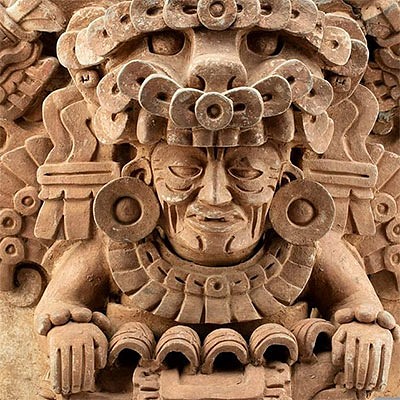Important Taino Marble Duho / Ceremonial Stool
About Seller
686 S Taylor Ave, Ste 106
Louisville, CO 80027
United States
Selling antiquities, ancient and ethnographic art online since 1993, Artemis Gallery specializes in Classical Antiquities (Egyptian, Greek, Roman, Near Eastern), Asian, Pre-Columbian, African / Tribal / Oceanographic art. Our extensive inventory includes pottery, stone, metal, wood, glass and textil...Read more
Two ways to bid:
- Leave a max absentee bid and the platform will bid on your behalf up to your maximum bid during the live auction.
- Bid live during the auction and your bids will be submitted real-time to the auctioneer.
Bid Increments
| Price | Bid Increment |
|---|---|
| $0 | $25 |
| $300 | $50 |
| $1,000 | $100 |
| $2,000 | $250 |
| $5,000 | $500 |
| $10,000 | $1,000 |
| $20,000 | $2,500 |
| $50,000 | $5,000 |
| $100,000 | $10,000 |
| $200,000 | $20,000 |
About Auction
Nov 10, 2022
Museum-worthy examples of classical antiquities (Egyptian, Greek, Roman, Near Eastern), Viking, Far East / Asian, Pre-Columbian, African / Tribal, Oceanic, Native American, Spanish Colonial, Nautical, Fossils, Ancient Jewelry, Fine / Visual Arts, so much more! Artemis Fine Arts info@artemisfinearts.com
- Lot Description
Pre-Columbian, Caribbean area, perhaps Dominican Republic, Taino (Arawak) Indians, ca. 1000 to 1500 CE. What a find! A magnificent marble ceremonial stool known as a duho, impressively hand-carved in the form of an otherworldly creature and incised with elaborate, geometric motifs. Rarely carved from stone or marble like this example, duhos were magical seats believed to take their owners travelling between worlds and grant them the power of prophecy! The reptilian zoomorph stands upon 4 short yet sturdy legs, each with toes and ankles, and displays clearly delineated male genitalia on its underside. He dramatically projects his head forward, stretching open his enormous mouth as though letting out a sonorous screech. His stylized visage exhibits huge, sunken eyes, an anthropomorphic nose, and openwork ears with annular earspools. The elongated, flattened body is slightly recessed on the top to serve as the seat. Intricately incised designs of nested triangular and spiral patterns adorn the head and body. Size: 19.5" L x 8.2" W x 5.3" H (49.5 cm x 20.8 cm x 13.5 cm)
According to the A History of the World in 100 Objects website, a joint project of BBC Radio 4 and the British Museum: "The Taino people believed that they lived in parallel with an invisible world of ancestors and gods, from whom their leaders could seek knowledge of the future. A duho would be owned only by the most important members of a community, and it was the vital means of getting through to the realm of the spirits. It was in one sense a throne, but it was also a portal, and a vehicle to the supernatural world….This is a seat for a leader, for the chief of a village or a region. Taino leaders were both male and female, and the duho embodied their social, political and religious power, and it was crucial to the functioning of their society. We know that in at least one instance a leader was buried sitting on his duho."
Cf. National Museum of Natural History, Smithsonian Institution, accession number 001534, Smithsonian Museum of the American Indian, catalog number 23/6092, and Peabody Museum of Archaeology and Ethnology, Harvard University, object number 16-24-30/C7504.
Provenance: private Roberts collection, Gainesville, Florida, USA, acquired before 1990; ex-Alfredo Carrada collection, New York, USA; ex-Alexander Rood collection
All items legal to buy/sell under U.S. Statute covering cultural patrimony Code 2600, CHAPTER 14, and are guaranteed to be as described or your money back.
A Certificate of Authenticity will accompany all winning bids.
We ship worldwide and handle all shipping in-house for your convenience.
#174310A few minor chips to periphery, as well as some small nicks and abrasions, all commensurate with age. Natural inclusion to stone that stretches vertically down each side of seat. Otherwise, intact and excellent with nicely preserved incised detail and light earthen deposits.Condition
- Shipping Info
-
Artemis Gallery will no longer be able to offer in-house shipping for most international orders, as well as all oversized orders, including most paintings. These items are clearly marked in the listing as “3rd Party Shipping Required” in the listing. We have a list of recommended third party shippers to assist you in shipping to and from, and would be happy to assist you in working with them. We require a written authorization from the client to release property to any third party. You may fax a Shipping Release Form to 303-828-3235 or email your authorization to kristen@artemisgallery.com. Please note the all property must be removed from our premises within seven (7) business days following the last day of the auction.
-
- Buyer's Premium



 EUR
EUR CAD
CAD AUD
AUD GBP
GBP MXN
MXN HKD
HKD CNY
CNY MYR
MYR SEK
SEK SGD
SGD CHF
CHF THB
THB














